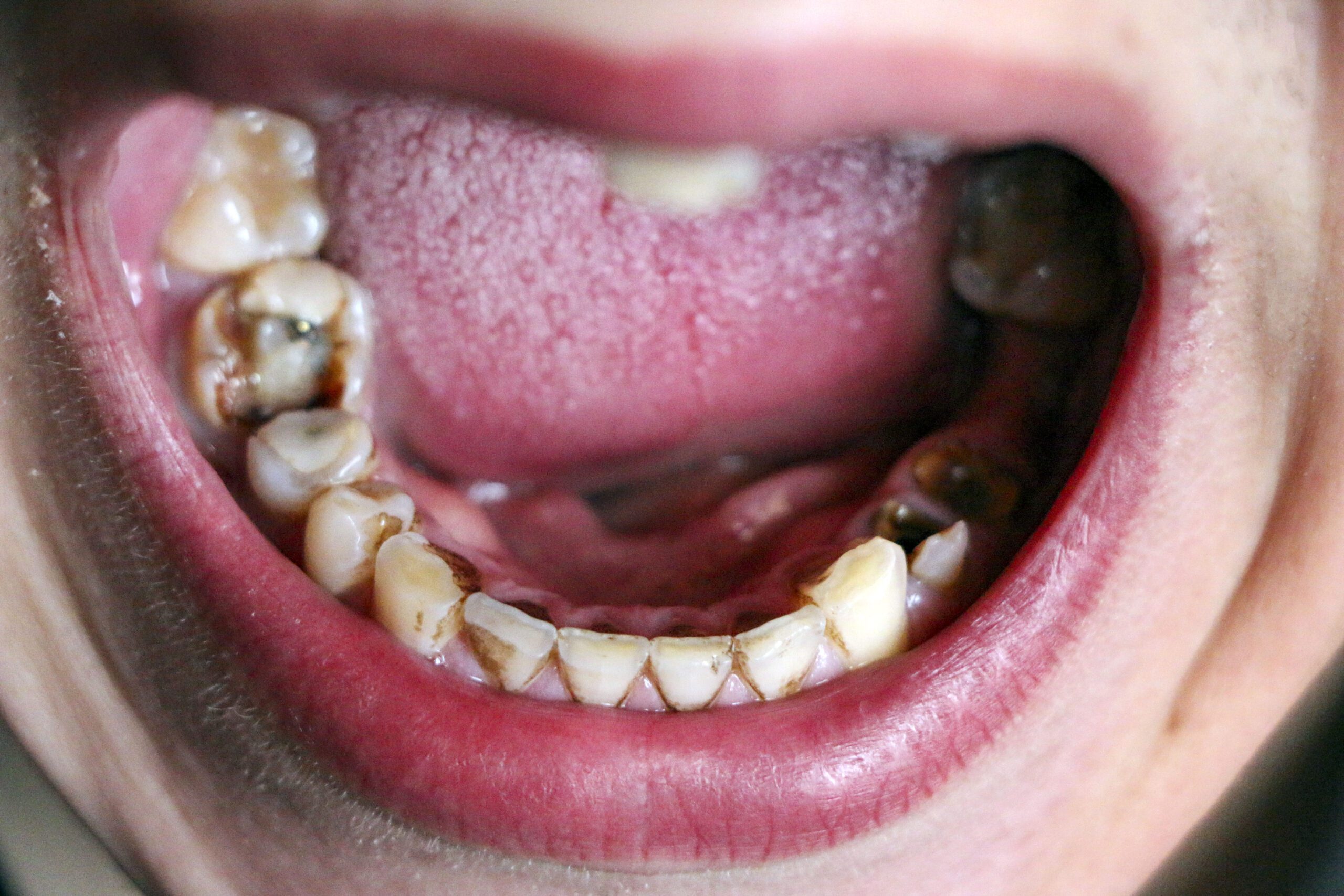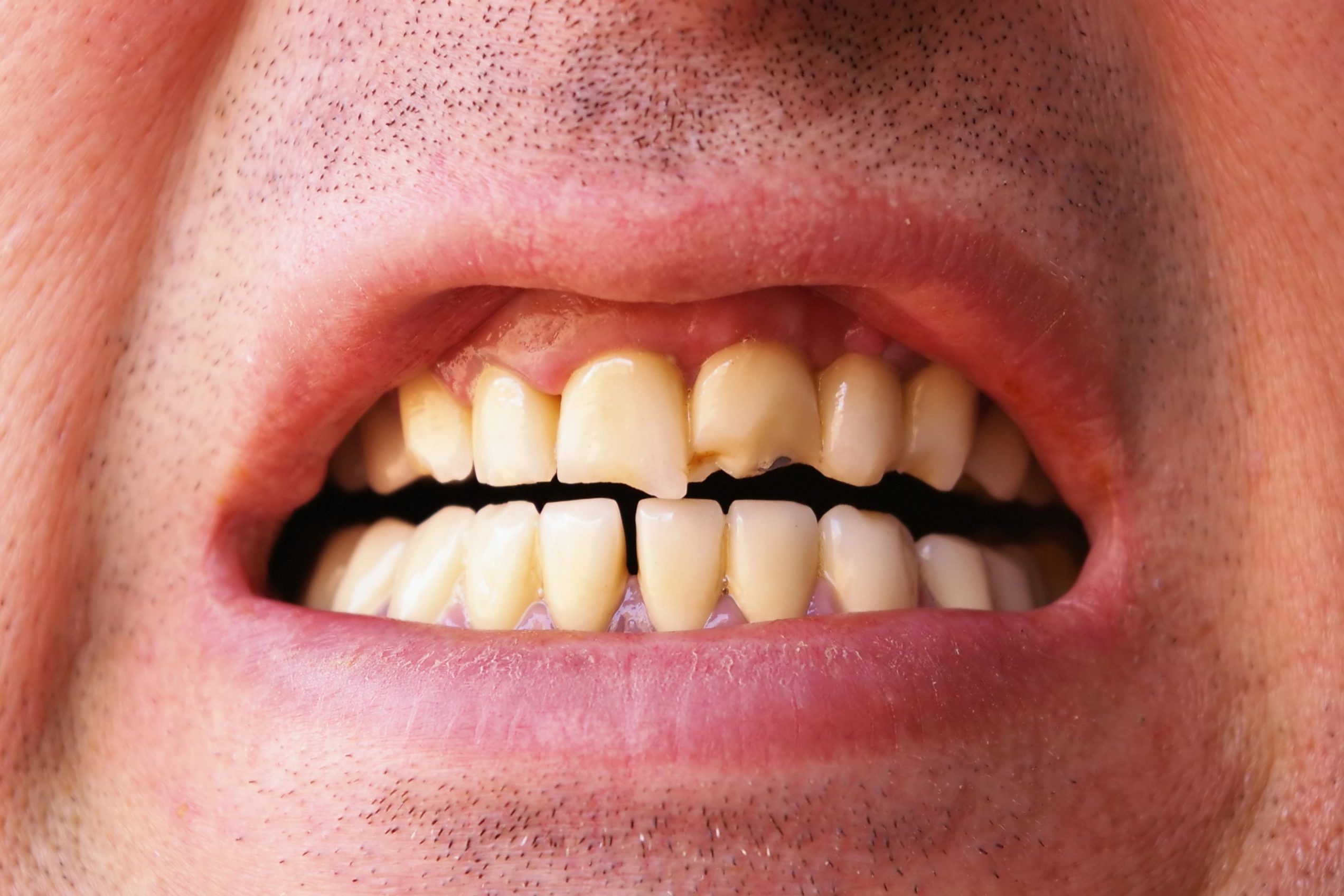It’s 2 AM, and you’re wide awake. That dull ache in your tooth has transformed into a throbbing sensation that seems to pulse with every heartbeat. You’ve tried switching positions, counting sheep, even scrolling through your phone – but nothing distracts from the dental pain that’s stolen your good night’s sleep. At night, there are fewer distractions, making it harder to ignore the pain. If this sounds familiar, you’re definitely not alone.
In fact, over 2 million Americans visit emergency rooms each year for dental pain, with many of these visits happening during those long, sleepless nights when regular dental offices are closed. But here’s what we want you to know: there’s a real scientific reason why your toothache hurts more at night, and more importantly, there are ways to find relief – both tonight and for the long term.
Understanding Why Tooth Pain Gets Worse at Night
Let’s start with the science behind pain at night, because understanding what’s happening can actually help reduce some of the anxiety around nighttime tooth pain. When you lie down to sleep, several things happen in your body that can intensify dental discomfort.
Your Blood Flow Changes
The biggest culprit? Blood flow. When you’re standing or sitting during the day, gravity helps regulate blood flow throughout your body. But when you lie down, blood flow to your head increases, which can heighten sensations of pain. More blood rushes to your head, and this increased blood flow creates extra pressure on sensitive areas – including that painful tooth. It’s why you might notice a throbbing sensation that matches your heartbeat. The blood vessels in your dental pulp expand, pressing against nerves that are already irritated.
Those Nighttime Distractions Disappear
During the day, you’re busy. Work, family, conversations, and daily tasks all compete for your brain’s attention. But at night? It’s just you and that toothache. Without distractions, your brain has nothing else to focus on except the pain signals coming from your tooth. It’s not that the pain is necessarily worse – you’re just more aware of it.
Your Mouth Environment Changes
Here’s something interesting: your mouth goes through changes at night. Saliva production slows down significantly while you sleep. Since saliva helps neutralize bacteria and wash away food particles, less saliva means bacteria can thrive. If you have tooth decay or gum disease, this bacterial party can increase inflammation and pain, and may also lead to increased tooth sensitivity.

What’s Really Causing Your Nighttime Toothache?
Now that we understand why pain intensifies at night, let’s talk about what might be causing your toothache in the first place. It’s important to identify the underlying cause of your toothache, as this helps determine the right treatment and relief. Remember, tooth pain is your body’s way of saying “Hey, something needs attention here!”
Tooth Decay: The Most Common Culprit
When bacteria in your mouth produce acids that eat away at your tooth enamel, you get cavities. During the day, talking, drinking water, and producing saliva help manage this process. But at night? Those cavity-causing bacteria work overtime. If decay has reached the sensitive parts and inner layers of your tooth, lying down can make that aching tooth throb with pain.
You Might Be Grinding Your Teeth (Without Even Knowing It)
Many people unknowingly grind or clench their teeth at night – it’s called bruxism, and it’s more common than you might think. This grinding puts tremendous pressure on your teeth, causing pain that might wake you up or greet you first thing in the morning. If you’ve been under stress lately (and who hasn’t?), you might be taking it out on your teeth while you sleep.
Gum Disease and Infections
Gum infections and periodontal disease can cause a deep, aching pain that seems to worsen when you’re trying to fall asleep. In severe cases, you might have an abscess – a pocket of infection that creates intense, throbbing pain. This is one situation where you definitely don’t want to “wait and see.” A persistent toothache or an infected tooth needs professional attention to prevent the infection from spreading.
That Sinus Infection Might Be the Problem
Here’s something that surprises many of our patients: your upper teeth share nerve pathways with your sinuses. If you have a sinus infection, the pressure can actually make your teeth hurt – especially those upper molars. This type of pain often affects multiple teeth and might come with other sinus symptoms like congestion or pressure in your face.
Hidden Dental Issues
Sometimes a cracked tooth, broken tooth, worn filling, or other dental work that’s seen better days can cause nighttime pain. These issues might not bother you much during the day, but when that extra blood flow hits at night, suddenly you’re very aware something’s wrong. Pain can also result from an infected pulp if decay or damage reaches the tooth’s inner tissue.

Finding Relief Tonight: Practical Steps You Can Take Right Now
We know you’re looking for relief, and while we always recommend seeing a dentist for persistent pain, the following steps can provide temporary relief and are considered temporary solutions until professional care is available. Here are some things that can help you get through the night:
Adjust Your Sleeping Position
First things first – grab an extra pillow. Keeping your head elevated helps reduce blood flow to the affected area, which can significantly reduce that throbbing sensation and help prevent additional pain caused by increased blood pooling in the head. Try to avoid sleeping on the side where your tooth hurts, as the pressure can make pain worse.
Try These Home Remedies for Temporary Relief
Warm Salt Water Rinse: Mix half a teaspoon of salt in a cup of warm water and gently swish it around your mouth for 30 seconds. This natural remedy helps reduce inflammation and can temporarily ease pain. Plus, it helps clean the affected area. After rinsing, use dental floss to remove any remaining food particles or debris between your teeth.
Over-the-Counter Pain Relievers: Ibuprofen or acetaminophen can help manage pain and reduce inflammation. Always follow the recommended dosage on the package. Pro tip: ibuprofen is particularly effective for dental pain because it targets inflammation. You can also try medicated ointments or numbing gels, such as those containing benzocaine, for temporary pain relief – just be cautious when using them with young children.
Cold Compress: Apply an ice pack wrapped in a thin towel to the outside of your cheek on the affected side for 15-20 minutes. This can numb the area and reduce swelling. Just don’t apply ice directly to your skin or tooth. (This works great when used along side a salt water rinse.)
Clove Oil: This old-fashioned remedy actually works! Clove oil contains eugenol, a natural anesthetic. Dab a small amount on a cotton ball and apply it to the affected tooth for temporary relief.
⚠️ What to Avoid
Skip that late-night snack or late night meal, especially if it’s sugary, acidic, very hot or cold, or includes hard foods. These foods can trigger more pain in sensitive teeth. Eating a late night meal without proper oral hygiene afterward can also contribute to nighttime tooth pain. Also, resist the urge to place aspirin directly on your gums – it can actually burn your tissue and make things worse.

When to Stop Toughing It Out and Seek Help
We understand that many people, especially those with dental anxiety, tend to wait and hope tooth pain will go away on its own. However, if you experience severe tooth pain or frequent toothaches at night, these are clear signs that you should seek professional help. But here’s the truth: tooth pain rarely resolves without treatment, and waiting usually makes things worse (and more expensive to fix).
⚠️ Call for Help If You Experience:
- Severe pain that lasts more than two days
- Swelling in your face or jaw
- Fever along with tooth pain
- Difficulty swallowing or opening your mouth
- A persistent bad taste in your mouth
These symptoms could indicate a serious infection that needs immediate attention. Don’t wait for your regular dentist if you’re experiencing these warning signs – emergency dental care is available.
Long-Term Solutions: How We Can Help at Patient Empowered Dentistry
We know that coming to the dentist might not be your favorite thing – especially if you’ve been dealing with dental anxiety. Our goal is to address the underlying causes of toothache pain for lasting relief. That’s exactly why we do things differently at Patient Empowered Dentistry in Eastpointe. For more information about how we handle your privacy during your online visit to our website, please review our Cookie policy.
We Take Things at Your Pace
First, we listen. We want to understand not just your tooth pain, but your concerns about dental treatment. Many of our patients tell us they’ve avoided the dentist for years because of fear or bad past experiences. We get it, and we’re here to change that narrative. Modern dentistry has come a long way, with comfort measures and techniques that make treatment much more pleasant than you might remember.
Treatment Options That Make Sense for You
Depending on what’s causing your nighttime tooth pain, we might recommend:
For Cavities: Today’s fillings are quick, comfortable, and blend seamlessly with your natural teeth. Catching decay early means simpler, less invasive treatment.
For Grinding: A custom night guard can protect your teeth and jaw from the effects of grinding. It’s like a protective cushion for your teeth while you sleep.
For Infections: Whether it’s gum disease treatment or a root canal to save an infected tooth, we use the latest techniques to keep you comfortable throughout the process. And yes, root canals are nothing like their reputation – most patients are surprised by how manageable they are!
For Damaged Teeth: From crowns to other restorations, we can repair broken teeth and old dental work, eliminating those hidden sources of pain.
For Wisdom Teeth: If your pain is caused by wisdom teeth, we’ll evaluate their position and recommend removal if necessary. Wisdom teeth can cause discomfort whether they are impacted or fully erupted, and removal is often done during adolescence to prevent future issues.
Making Dental Care Work for Your Life
We know you’re busy – that’s why we offer flexible scheduling to work around your life. We also understand that cost can be a concern. We work with most insurance plans and offer payment options to make treatment accessible. Good dental health shouldn’t be out of reach for anyone.

Preventing Future Nighttime Tooth Pain
Once we’ve addressed your current pain, let’s talk about keeping it from coming back. Prevention really is less painful (and less expensive) than treatment. Taking preventive steps can help you avoid future toothaches and the discomfort they bring.
Daily Habits That Protect Your Teeth
You’ve heard it before, but it bears repeating: brushing twice a day and flossing once really does make a difference. Use a soft-bristled toothbrush and fluoride toothpaste. If you have sensitive teeth, special toothpastes can help reduce pain over time.
Also, pay attention to your stress levels. If you’re grinding your teeth due to stress, addressing the root cause (along with wearing a night guard) can help protect your teeth.
Regular Check-Ups: Your Best Investment
We recommend visiting us every six months for a cleaning and check-up. These visits let us catch small problems before they turn into middle-of-the-night emergencies. Plus, professional cleanings remove bacteria-harboring tartar that you can’t remove at home.
Think of it this way: regular dental visits are like changing the oil in your car. A little maintenance goes a long way in preventing major problems down the road.
You Don’t Have to Live with Tooth Pain
If you’ve made it this far, you’re clearly ready to do something about your nighttime tooth pain. That’s the first step, and we’re proud of you for taking it. Whether you need immediate relief or you’re ready to address ongoing dental issues, we’re here to help you get a good night’s rest by managing your dental pain.
At Patient Empowered Dentistry, we believe in giving you the knowledge and options you need to make the best decisions for your oral health. No judgment, no pressure – just compassionate care that puts you in control.
Ready to sleep through the night again? We offer a free consultation where we can discuss your concerns, examine what’s causing your pain, and create a treatment plan that works for you. Because everyone deserves a good night’s sleep – and a healthy, pain-free smile.
Don’t let another night pass with tooth pain keeping you awake. Call us today or visit our website to schedule your free consultation. Your future self (the one sleeping peacefully through the night) will thank you.
